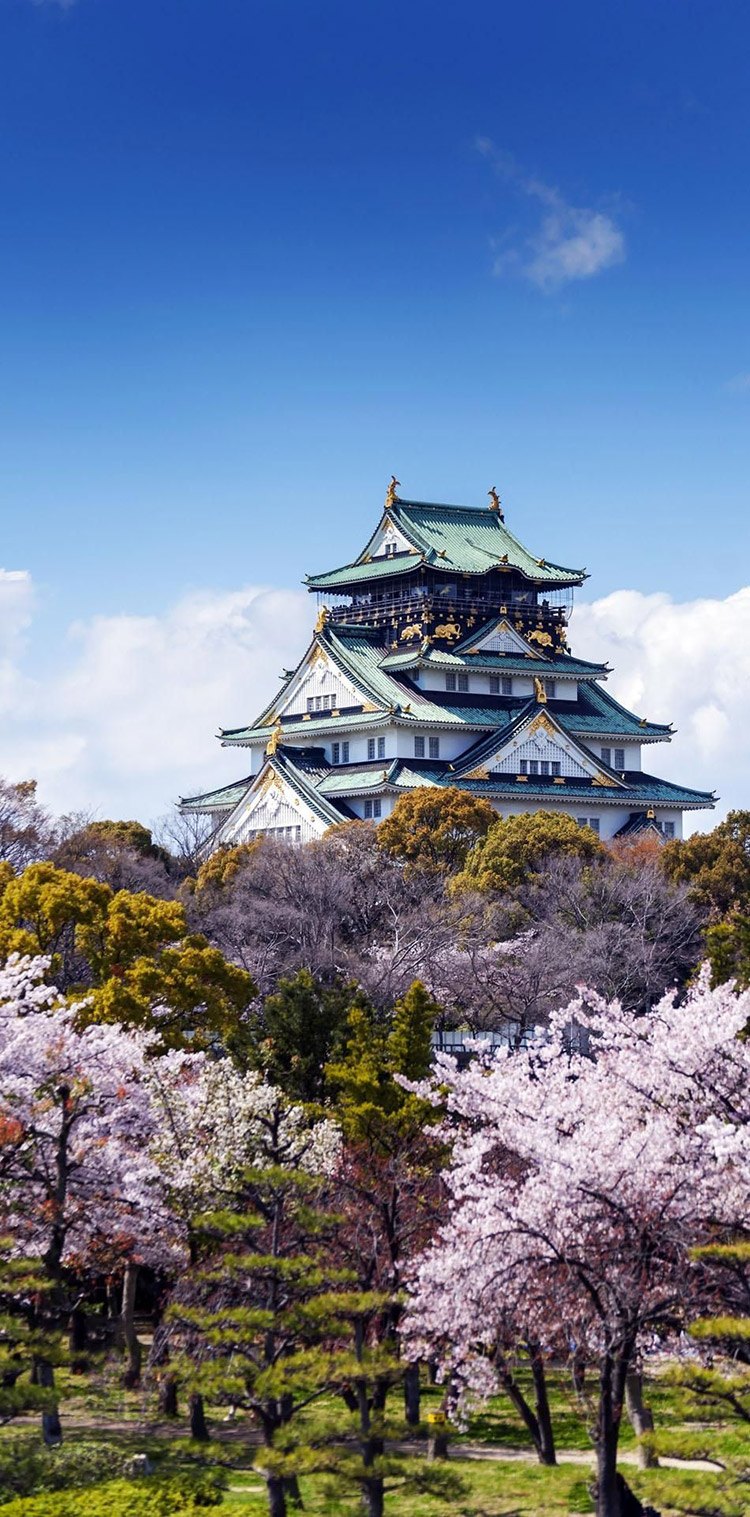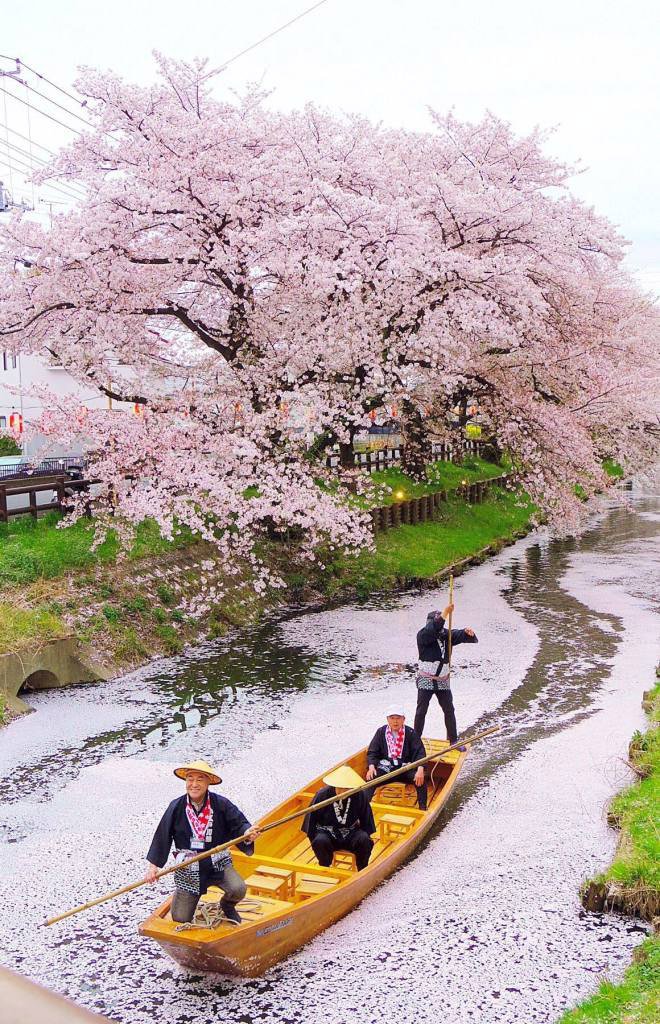Leave a Comment:
1 comment
[…] before you head out the door, be sure to check out my piece on planning a trip to Japan. Culture and practices are very important to the Japanese people, and that article will tell you […]
Reply
Each trip you choose to make is an experience in itself. Throughout my travels, it is what I have found, that not only does it help unwind and reset, but it also helps me learn much more than if I had just stayed put in one place. It is also through my travels that I have realized the importance of planning ahead.
More...
I mean, is there anything worse than forgetting something when you’re already at the airport, or leaving something to chance when your luck runs out? Planning ahead has saved me stress on numerous occasions, including when I was planning my trip to Japan.

via twitter.com
Looking back, I find myself very grateful for my travel experiences, as they have taught me to leave little to chance, and to be as meticulous as need-be in the planning stages.
Honestly, wherever you are in the world, it is likely that a flight to Japan is a long haul flight, so meticulous planning should be taken to ensure nothing is left way back home, and your travel is as smooth as possible.

via amongraf.ro
So, without further ado, it is time to go about planning a trip to Japan!
Currently, 67 countries and regions are allowed to enter Japan without a visa. Check if you require a visa and find out where you nearest Japanese consultancy is to process a visa if it’s needed.
“Does your passport expire before the end of your trip? When do you want to change your currency, before you leave or when you arrive? What are you allowed to bring into Japan from your country? How much luggage do you predict you will need when returning, provided you’re planning on shopping in Japan?Do you have good travel gear?”
These are all questions you need to ask before you begin planning your trip to Japan to avoid stress or additional costs during/after the actual planning phase.
Many places allow you to enter for free, and those places are not the places you need to worry about. Certain places, however, do require an entry fee and can be quite popular. Pre-booking can not only help you save money, but it can also help you avoid the almost inevitable long queues.

via amongraf.ro
Choosing when to go is also important, especially in Japan, as it is a country with all four seasons. Each season has its perks, from the perilous ski slopes of winter to the gorgeous colors of fall, planning around the season will help you get the most out of your Japanese adventure.
Try and pick a certain area you want to go, too! Japan is a big country, and unless you’re willing to take a month or two to try and explore the entire country, there is no way you will be able to fully enjoy all it has to offer. Be realistic, both with time and with your budget, and plan accordingly so you’re not disappointed.
Are you planning a luxurious getaway or a backpacker’s escape? It all depends on the budget, and planning ahead is very budget friendly.
Many hotels and hostels offer lower rates for those who plan ahead, and booking before you arrive will save you not only paying the over-the-counter price, but also the stress of arriving at a ‘peak’ date and finding out the accommodation is full.

via ichinichi.tokyo

via
Also, if the places you want to visit are near each other, you may want to choose an accommodation that is close-by. There may be places further away that are cheaper, but staying within walking distance will save you transport costs and lower the risk of getting lost.
You could go with a tour group, usually with a bunch of people from the same country as you. It could make life a lot easier for you, especially if it is your first time there.
I went with a tour group on my first trip, and let me tell you – it takes away most of the stress involved in planning the trip, as the only thing you really have to worry about is the visa part of the trip, and they even provide the appropriate forms and dates, as they did in my case.

via insaitama.com
However, after your first time, I strongly suggest planning the trip yourself, as you will be able to allow free time to explore, as opposed to following the structure set out by the guides, which may consist of a few photo-taking minutes at a place you’d rather spend hours at.
Take the time to ask yourself the right questions and find out the right answers, and you will find yourself worrying less when the time for travel actual arrives. Now, time to actually plan the trip!
After you’ve figured out your visa, the next thing to do would be to book your tickets. Do it as early as possible, as you never know what you could uncover or how much you could save just by searching way in advance, so get to it! The same goes for accommodation and activities; early bird catches the worm.
Also, don’t forget travel insurance, as it helps you travel with an absolute peace of mind.
There is no need to be super specific with this, just the general direction you’re headed. Do not forget to plan for free time, especially in places you know you will enjoy, whether it be a hike for nature-lovers or a shopping spree for the shopaholics.
The better your plan, the easier it will be to find out how to get from place to place.
There is no need to go in depth with the Japanese language, but it is only polite to learn some of the words. I only knew the basic “hello”, “thank you”, and some standard questions, such as “how much does it cost”, but the Japanese people really appreciated the effort!
You will definitely learn along the way, and the Japanese are very patient, especially with increasing numbers of tourists gracing their shores, but you should pick up the basics before you go! It will come in handy and may spare you waving your hands around and wildly pointing.
Whatever it may be that you’re unsure of, ask! You may have friends that have already made the trip, and they will have advice that only experience can bring. If not, the internet is your friend, so be sure to write down any questions and do the adequate research before making the trip.

However, if you are like me and only realize you have questions when you do arrive in Japan, fret not! Whether you are at the airport or a little town, find someone to direct your questions to. The Japanese people are very, very friendly and will do their best to answer your question, even if it means directing it to somebody who does speak your language!
The Japanese culture is deep and historical, and they do take offense if they are not adhered to, tourist or not. For example, bowing is a big one as it is used for almost every occasion; from a simple greeting to concluding a serious meeting, the depth of the bow in accordance to its seriousness.
On my travels, I have also found that tipping is not commonplace in Japan, unlike in many other nations, as they feel the price covers not only the product but the service too. Make a point to research not only Japan but the specific places you’re headed too, as it will come in handy when you’re looking to respect the locals and their traditions (this is a good place to start).
I have made four trips to Japan since that faithful first time, mostly because I have fallen in love with the country, but also because it has taught me so much. The seamless blend of the big cities and the well-preserved traditional villages will always be stuck in my mind.
Hopefully, this has helped you in a stress-free planning of your trip to the ‘Land of the Rising Sun’. The Japanese are a friendly but traditional culture, so care should be taken both while planning your personal travel, and also when interacting with the locals; make the effort, and they will take good care of you.
Please tell us if this was useful to you, and share your Japan experiences with us in the comments below! If you know of someone en route to Japan, show them this article and maybe it can help them, too! Have a safe trip!
Hi! My name is James Wilson, adventurer and traveler. I was born in New York City, am 29 this year, and have been traveling since I was 19. New places fill me with an unexplainable joy, so let me share some of my experiences with you!
Planning Your First Everest Adventure? Here’s What Most Trekkers Forget to Consider
Exploring the Majestic Pinatubo Crater: A Journey to Remember
Turkestan – A Rapidly Developing Travel Destination
Time For Couples: Romantic Destination For Couples
Istanbul: Best Attractive Places To See
[…] before you head out the door, be sure to check out my piece on planning a trip to Japan. Culture and practices are very important to the Japanese people, and that article will tell you […]
Reply